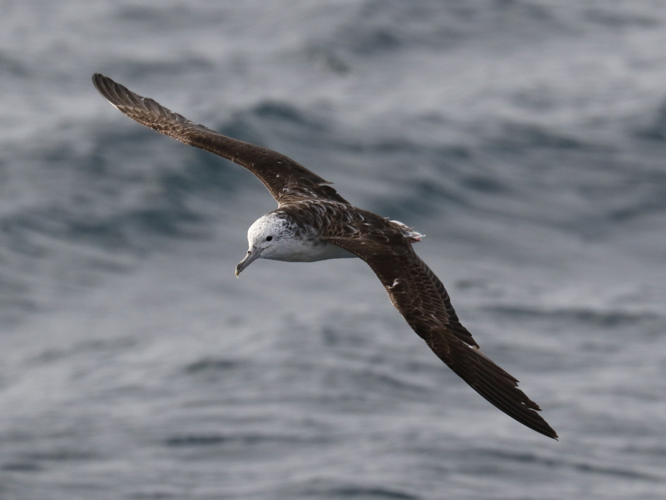
(Yusuke Goto via SWNS)
By Stephen Beech
Seabirds only poop while flying, according to new research.
And they do so up to once every four minutes - excreting 5% of their body mass per hour, say scientists.
Researchers uncovered the peculiar bathroom ritual by using backward-facing cameras mounted on streaked shearwaters.
The Japanese team found that the seabirds defecate while flying - not while floating on water - and they do so every four to 10 minutes.
The habit may help the birds stay clean while fertilizing the ocean below, according to findings published in the journal Current Biology.
But the researchers didn’t set out to document the seabirds’ bathroom habits.
Study lead author Dr. Leo Uesaka, from the University of Tokyo, said: “I was studying how seabirds run on sea surface to take off.

(Leo Uesaka via SWNS)
“While watching the video, I was surprised that they dropped feces very frequently.
"I thought it was funny at first, but it turned out to be more interesting and important for marine ecology.”
He says seabird droppings enrich the soil and fertilize nearby coastal waters thanks to their high nitrogen and phosphorus contents.
Researchers have previously studied how those nutrients shape ecosystems on land.
But much less is known about how they impact what happens far from shore, in the open ocean, where seabirds spend most of their lives.
With an estimated 424 million shearwaters and their kins, researchers believe their droppings could fertilize the water below, providing nutrients to plankton and other marine life.
Using eraser-sized, backward-facing cameras strapped to the bellies of 15 streaked shearwaters, Dr. Uesaka recorded and analyzed nearly 200 defecation events.
He found that the birds "almost always" relieved themselves while flying and that defecation often occurred shortly after take-off.
Occasionally, the birds took off solely for bathroom breaks and returned to the water within a minute.
The findings suggest that they intentionally avoid pooping while floating, according to Dr Uesaka.

(Leo Uesaka via SWNS)
He said: “Streaked shearwaters have very long and narrow wings, good for gliding, not flapping.
“They have to flap their wings vigorously to take off, which exhausts them.
"This means the risk of excreting on the sea surface outweighs the effort to take off.
"There must be a strong reason behind that.”
The researchers suspect the habit may spare the birds from fouling their feathers with feces, while helping them avoid attracting predators.
Or it may simply help the birds defecate more easily compared to a floating position.
The research team estimated that the birds excrete 30 grams of poop every hour, which is about 5% of their body mass.
Dr. Uesaka said: “We don’t know why they keep this excretion rhythm, but there must be a reason."
He plans to use cameras or temperature sensors with longer battery life, combined with GPS, to map where seabirds release their droppings at sea.
Dr. Uesaka hopes that further research will offer greater insights into the role of seabird feces in marine ecology.
He added: “Feces are important.
“But people don’t really think about it.”























(0) comments
Welcome to the discussion.
Log In
Keep it Clean. Please avoid obscene, vulgar, lewd, racist or sexually-oriented language.
PLEASE TURN OFF YOUR CAPS LOCK.
Don't Threaten. Threats of harming another person will not be tolerated.
Be Truthful. Don't knowingly lie about anyone or anything.
Be Nice. No racism, sexism or any sort of -ism that is degrading to another person.
Be Proactive. Use the 'Report' link on each comment to let us know of abusive posts.
Share with Us. We'd love to hear eyewitness accounts, the history behind an article.